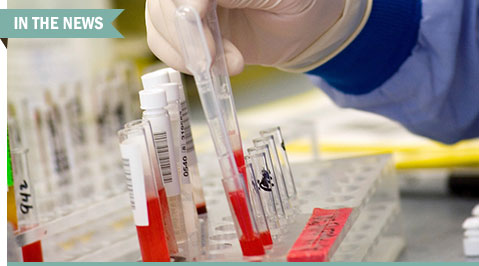 Image credit: Ingram Publishing/Thinkstock
Image credit: Ingram Publishing/Thinkstock
The Food and Drug Administration (FDA) and the Centers for Medicare and Medicaid Services (CMS) are putting together an interagency task force to expand their collaboration around oversight of laboratory-developed tests (LDTs). FDA issued draft guidance in October 2014 for overseeing the quality of LDTs, proposing that the FDA oversee the tests alongside CMS, which regulates labs through the Clinical Laboratory Improvement Amendments (CLIA).
“We have heard stakeholder confusion about the roles of the two agencies in ensuring quality and concerns about potentially duplicative efforts. To coordinate efforts across the Department, FDA and CMS are establishing an interagency task force that will continue and expand on our collaboration related to the oversight of LDTs, which are tests intended for clinical use and designed, manufactured, and used within a single lab,” wrote Jeffrey Shuren, MD, JD, and Patrick H. Conway, MD, MSc, in FDAVoice. “The task force, comprised of leaders and subject matter experts from each agency, will work to address a range of issues, including those involving quality requirements for LDTs.” Shuren is director of FDA’s Center for Devices and Radiological Health, and Conway is acting principal deputy administrator and CMS chief medical officer.
FDA’s proposed plan is to phase in enforcement of premarket review requirements and quality system regulation for LDTs. This oversight will ensure that the tests are able to accurately detect analytes and able to measure or detect clinical conditions that the tests are intended for. The agency is reviewing public comments on the draft guidance —including those submitted by AACC—and may modify the framework when final guidance is issued.
“When FDA’s proposed framework is implemented, both FDA and CMS will play a role in ensuring that LDTs are high quality—CMS through CLIA by continuing to focus on laboratory operations including the testing process and FDA by enforcing compliance with the agency’s quality systems regulation pertaining to the design and manufacture of the laboratory tests,” Shuren and Conway explained. “Although the roles of the agencies are different, FDA and CMS share an interest in ensuring effective and efficient oversight of LDTs so laboratories can offer tests to the American public with confidence that they are accurate and provide clinically meaningful information without unnecessary or duplicative agency oversight.”